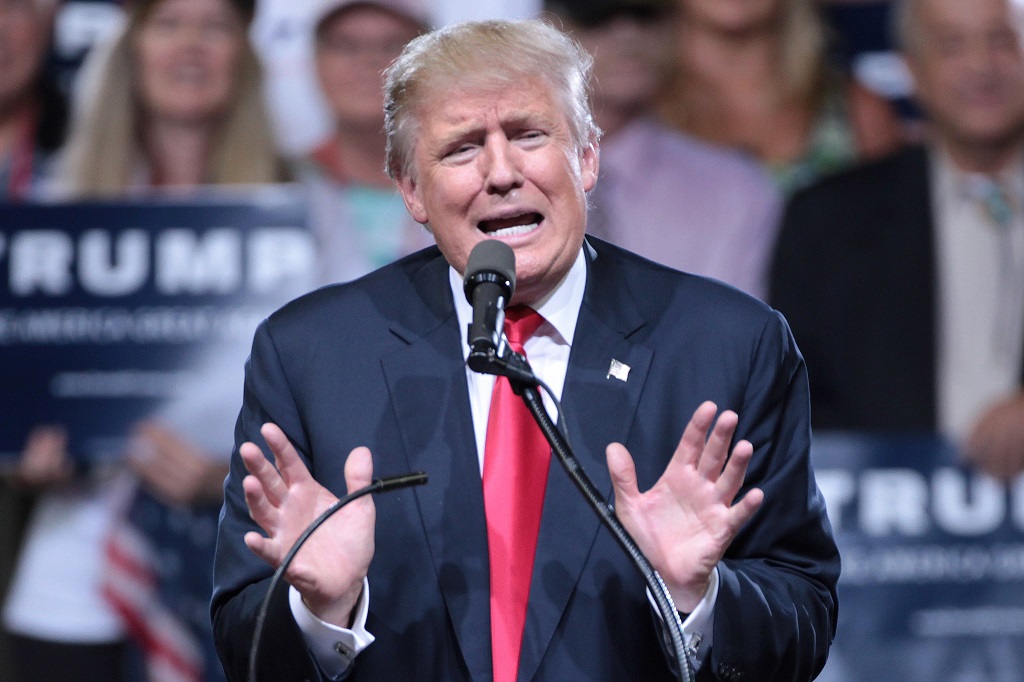
George Lakoff on Donald Trump Dear Friend and Reader: Below we're featuring an insightful two-article series by George Lakoff, Distinguished Professor of Cognitive Science and Linguistics Emeritus at the University of California at Berkeley. His website is georgelakoff.com.
These articles are published with the author's kind permission: an exciting and enlightening analysis that in my view cannot be widely enough shared or understood. Eric has done an extensive reading of Trump's chart, and adds this comment: "The discussion in these excellent articles is not just about Donald Trump. We've been reading about McLuhan's approach to media studies here on Planet Waves for two years, and this says more about the wider human environment than it does about one person. Yet Trump is one example of that psychology, and his presidential candidacy will be one of the most helpful and relevant lessons in American politics for our lifetimes." I hope you enjoy reading these articles. Please feel free to comment on the website, or by email to cs@planetwaves.net. With best wishes,  Amy Elliott Planet Waves Client Services Part 1: Understanding Trump There is a lot being written and spoken about Trump by intelligent and articulate commentators whose insights I respect. But as a longtime researcher in cognitive science and linguistics, I bring a perspective from these sciences to an understanding of the Trump phenomenon. This perspective is hardly unknown. More than half a million people have read my books, and Google Scholar reports that scholars writing in scholarly journals have cited my works well over 100,000 times.
There are reasons, and we will discuss them later in this piece. I am writing it because I think it is right and it is needed, even though it comes from the cognitive and brain sciences, not from the normal political sources. I think it is imperative to bring these considerations into public political discourse. But it cannot be done in a 650-word op-ed. My apologies. It is untweetable. I will begin with an updated version of an earlier piece on who is supporting Trump and why -- and why policy details are irrelevant to them. I then move to a section on how Trump uses your brain against you. I finish up discussing how Democratic campaigns could do better, and why they need to do better if we are to avert a Trump presidency. Who Supports Trump and Why Donald J. Trump has managed to become the Republican nominee for president. Why? How? There are various theories: People are angry and he speaks to their anger. People don’t think much of Congress and want a non-politician. Both may be true. But why? What are the details? And why Trump? He seems to have come out of nowhere. His positions on issues don’t fit a common mold. He has said nice things about LGBTQ folks, which is not standard Republican talk. Republicans hate eminent domain (the taking of private property by the government) and support corporate outsourcing for the sake of profit, but he has the opposite views on both. He is not religious and scorns religious practices, yet the Evangelicals (that is, the white Evangelicals) love him. He thinks health insurance and pharmaceutical companies, as well as military contractors, are making too much profit and wants to change that. He insults major voting groups, e.g. Latinos, when most Republicans are trying to court them. He wants to deport 11 million immigrants without papers and thinks he can. He wants to stop Muslims from entering the country. What is going on? The answer requires a bit of background. Read more... Part 2: Understanding Trump's Use of Language The Responsible Reporter's Problem Responsible reporters in the media normally transcribe political speeches so that they can accurately report them. But Donald Trump's discourse style has stumped a number of reporters. Dan Libit, CNBC's excellent analyst, is one of them. Libit writes: His unscripted speaking style, with its spasmodic, self-interrupting sentence structure, has increasingly come to overwhelm the human brains and tape recorders attempting to quote him. Trump is, simply put, a transcriptionist's worst nightmare: severely unintelligible, and yet, incredibly important to understand.Some in the media (Washington Post, Salon, Slate, Think Progress, etc.) have called Trump's speeches “word salad.” Some commentators have even attributed his language use to “early Alzheimer's,” citing “erratic behavior” and “little regards for social conventions.” I don't believe it.
I have found that he is very careful and very strategic in his use of language. The only way I know to show this is to function as a linguist and cognitive scientist and go through details. Let's start with sentence fragments. It is common and natural in New York discourse for friends to finish one another's sentences. And throughout the country, if you don't actually say the rest of a friend's sentence out loud, there is nevertheless a point at which you can finish it in your head. When this happens in cooperative discourse, it can show empathy and intimacy with a friend, that you know the context of the narrative, and that you understand and accept your friend's framing of the situation so well that you can even finish what they have started to say. Of course, you can be bored with, or antagonistic to, someone and be able to finish their sentences with anything but a feeling of empathy and intimacy. But Trump prefers to talk to a friendly crowd. Trump often starts a sentence and leaves off where his followers can finish in their minds what he has started to say. That is, they commonly feel empathy and intimacy, an acceptance of what is being said, and good feeling toward the speaker. This is an unconscious, automatic reaction, especially when words are flying by quickly. It is a means for Trump to connect with his audience. Read more...
BALANCE, Eric's 2016 Midyear Reading, is now complete and ready for instant access. You may order all 12 signs here, or choose your individual signs. Here is a preview video, featuring brief clips from each of the sign readings (and a couple of adorable appearances by a movie star in the making, Jonah Kelly Francis).
To unsubscribe, click here. To unsubscribe from all future Planet Waves emails, please write to cs@planetwaves.net Copyright © 2016 by Planet Waves, Inc. All Rights Reserved. Other copyrights may apply. Some images used under Fair Use or Creative Commons attribution. |



